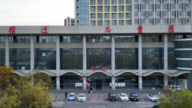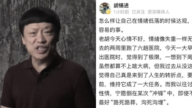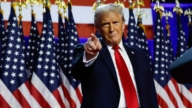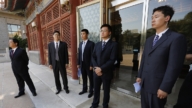【新唐人2011年11月26日讯】第三季度人民币贸易结算额首次出现下降,这既出乎意料又合情合理,数据显示,人民币结算贸易蓬勃发展的背后,是内地公司越来越猖獗的套利行为,外国公司实际参与的贸易结算非常少。专家分析,人民币未来五到十年匹敌美元实际是不可能的。
美中经济与安全评估委员会(US-China Economic and Security Review Commission)11月在提交给国会的年度报告中警告说,未来5至10年之内人民币可能对美元在国际上的主导地位构成威胁。
美国南卡罗来纳大学艾肯商学院教授谢田博士表示,美国经常自己给自己提出警告,“美中经济与安全评估委员会”是从最坏的角度来提醒美国的决策者们,他们是在假设中国经济一直保持在每年10%以上的增长率的前提下作出的猜测。
谢田:“人民币要对美元构成威胁的话,首先人民币必须成为自由流通货币,如果不是自由流通的,没有人愿意把它作为储存货币,第二没有人愿意去接受一个被政府操控的货币作为一个主要货币,如果中国政府可以随便操控,随便更改汇率,那其他国家为什么有必要把自己的财富让另外一个国家来决定呢。”
中国人民银行(PBoC)在最新的货币政策报告中披露,第三季度跨境贸易人民币结算总额有所回落,这是自2009年6月中国启动相关试点以来这个数据首次出现下降。
正如英国《金融时报》在1月份率先报导的,人民币贸易结算蓬勃发展的主要原因之一,就在于中国内地公司一直在与它们的香港子公司进行交易,以图在两个市场之间套利。银行界人士表示,第三季度套利活动有所减少,导致人民币贸易结算也跟着下滑。
根据全球支付系统Swift的数据,80%以上的跨境人民币支付与香港有关。人民币跨境支付交易中,只有8%是“真正对外的”,也就是说交易的一方来自中国内地和香港以外的地方。
据谢田博士分析,中国那一点点真正的境外人民币结算,主要来自越南和俄罗斯等一些边境的小小交易。
谢田:“因为中国金融市场面临更大的压力,一个是国际化的形势,另外国际资本还在继续从中国流出,没有大的跨国公司在贸易时采用人民币,除非是俄罗斯和越南一些边境城市一些小的贸易以外,其他根本没有使用人民币的现象,人民币成为国际货币,这个还不是一年两年的事情。”
全球最大银行之一的一位高管表示,“事实上,当前几乎没有一家大型跨国公司在贸易中采用人民币。”他说,外国公司都习惯使用美元,而有关使用人民币的复杂规定也让他们退避三舍。
谢田博士认为,加上中国经济在5年内可能出现硬着陆,人民币离国际化的目标越来越远。
报告同时说,中共正继续大举干预国内经济,采用的手段包括:向国有企业提供补贴和保护,迫使外国投资者转让技术,以及只对中国企业开放政府采购。
中共仍对跨境资本流动实施大量管制,同时继续大规模干预汇市、以压低人民币汇率。
在华盛顿,人民币问题已再度成为政治议程上最重要的议题。10月份,美国参议院通过一项法案,允许美国根据估算的汇率低估幅度,对中国输美商品征收报复性关税。
奥巴马政府高级官员,包括美国贸易代表罗恩?柯克(Ron Kirk)和商务部长约翰?布赖森(John Bryson),本周末将前往中国出席美中商贸联委会(JCCT)会议,这是两国政府就相关事务举行双边谈判的主要论坛。
新唐人记者刘惠、王明宇采访报导。
Will the RMB Match the US Dollar?
This is the first time third quarter Chinese currency trade
settlement amounts took a down turn.
Although this news is somewhat unexpected,
it is still reasonable.
Data shows that behind the Chinese currency
RMB trade settlement’s development lays rampant arbitrage in mainland companies, with foreign companies being less involved.
Expert analysts believe that it is impossible for the RMB to
match the U.S. dollar over the next five to 10 years.
U.S.-China Economic and Security Review Commission
(USCC) warns in a November report that
the RMB could threaten the U.S. dollar’s dominance in
five to 10 years.
Xie Tian, a professor at the Aiken School of Business
of the University of South Carolina, said that the U.S. often warns itself.
The USCC reminds U.S. policymakers from the worst angle,
that is, their assumptions are based on two things:
China sustaining a 10 percent annual growth rate and
some of its own calculated guesses being calculated right.
Xie Tian: “If the RMB could threaten the U.S. dollar, firstly,
the RMB must be a freely circulating currency, if not, no one will want it as a reserve currency;
secondly, no one is willing to accept a currency that
is manipulated by a government.
If the CCP regime can easily control and change the exchange rate,
why is it necessary for other countries to put their national wealth in the hands of another country?”
The People’s Bank of China recently reported that the 3rd quarter
of total cross-border trade in RMB has dropped slightly,
which is the first decline since June 2009, when China launched
related test projects.
The U.K.’s Financial Times first reported in January that
the main reason for the RMB trade settlement boom is that
mainland companies are trading with their Hong Kong
subsidiary companies, attempting to arbitrage between the two markets.
Bankers said that third-quarter arbitrage activity has decreased,
leading to a decrease in RMB trade settlement.
According to data from Swift, a global payment system,
80% of cross-border RMB payments relate to Hong Kong.
During RMB cross-border payment transactions, only 8% is
the “real publicised,” figure,
meaning, the bulk of trade transactions are from the mainland
and outside of Hong Kong.
According to Xie Tian’s analysis, China’s real outsider
small RMB settlements are mainly from Vietnam and Russia and some other small border transactions.
Xie Tian: “Because China’s financial market is facing
great pressure, one is the internationalization push;
another one is that the capital flight out of China, and the
fact that there are no major multinational companies using the RMB in trade, except Russia and Vietnam.
The RMB cannot become the international currency of choice
in one or two years.”
An executive from one of the world’s largest banks
said that at the moment there are almost no multinational companies trading in the RMB.
He said that foreign companies make use of U.S. dollars,
and shun the RMB due to its complexity.
Xie Tian believes that China’s economy is possibly
out of control and will face a serious crises in five years.
Thus, the target of having the RMB replace the U.S. dollar
as the world reserve currency moves further and further away.
The USCC also reported that the Chinese Communist Party (CCP)
is continuing to intervene in China’s domestic economy,
They provide subsidies and protection to state-owned companies,
they force foreign investors to transfer their technology to China,
and only open up government procurement
to national enterprises.
The CCP still controls the flow of a large amount
of cross-border capital.
Meanwhile, it continues to intervene in currency markets
in order to hold down the RMB exchange rate.
In Washington, the RMB issue has once again become the
most important political issue on the U.S. government’s agenda.
In October, the U.S. Senate passed a bill allowing
the United States to underestimate the margin of exchange rate
according to estimation, in order to impose retaliatory tariffs
on China’s export production to the United States.
President Obama’s administration officials, including U.S.
Trade Representative Ron Kirk and Commerce Secretary John Bryson,
will be attending the U.S.-China Joint Commission on
Commerce and Trade meeting this weekend.
This is the main forum for the two governments to hold
bilateral negotiations on related matters.
NTD reporters Liu Hui and Wang Mingyu



























